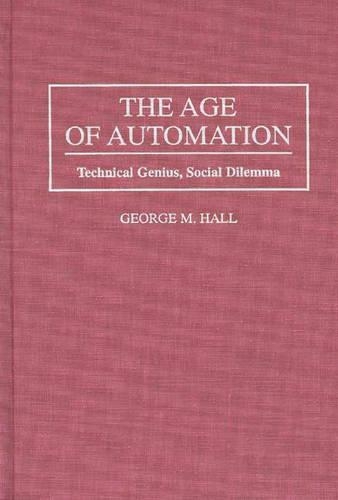
The Age of Automation: Technical Genius, Social Dilemma
(Hardback)
Publishing Details
The Age of Automation: Technical Genius, Social Dilemma
By (Author) George M. Hall
Bloomsbury Publishing PLC
Praeger Publishers Inc
30th August 1995
United States
Classifications
Tertiary Education
Non Fiction
Sociology and anthropology
303.4834
Physical Properties
Hardback
256
Description
Automation now supplants economic activity more than it supports it. Furthermore, this process is fueled by enormous economic forces, which intensifies dependence on automation and spawns other sociological consequences. Of these consequences, fraud generates the highest immediate losses, amounting to $300 billion annually. In the long run, however, the greatest economic cost will occur through loss of jobs, and a lowering of net skills for most of the balance. Other consequences include pervasive invasion of privacy, and overdependence on technology at the expense of developing critical reasoning, judgement, and a personal sense of responsibility. Fortunately, many of these consequences could be ameliorated by automated countermeasures that offset the excesses. Unfortunately, it usually takes a crisis to institute fundamental reform, though the looming economic meltdown stemming from the mounting federal debt offers just such an opportunity.
Reviews
In his study of the status and effects of automation in society, Hall develops the thesis that "automation has reached a point of critical mass and now supplants human capability more than supports it." A good resource for studies in computing and society.-Choice
"In his study of the status and effects of automation in society, Hall develops the thesis that "automation has reached a point of critical mass and now supplants human capability more than supports it." A good resource for studies in computing and society."-Choice
Author Bio
GEORGE M. HALL teaches Computer Science and Sociology at Pima Community College. He is the author of more than 10 books, six on the subject of computer technology, including Systems, Strategy, and Integration (1990) and Image Processing (1991). His book, The Fifth Star was published by Praeger in 1994.
